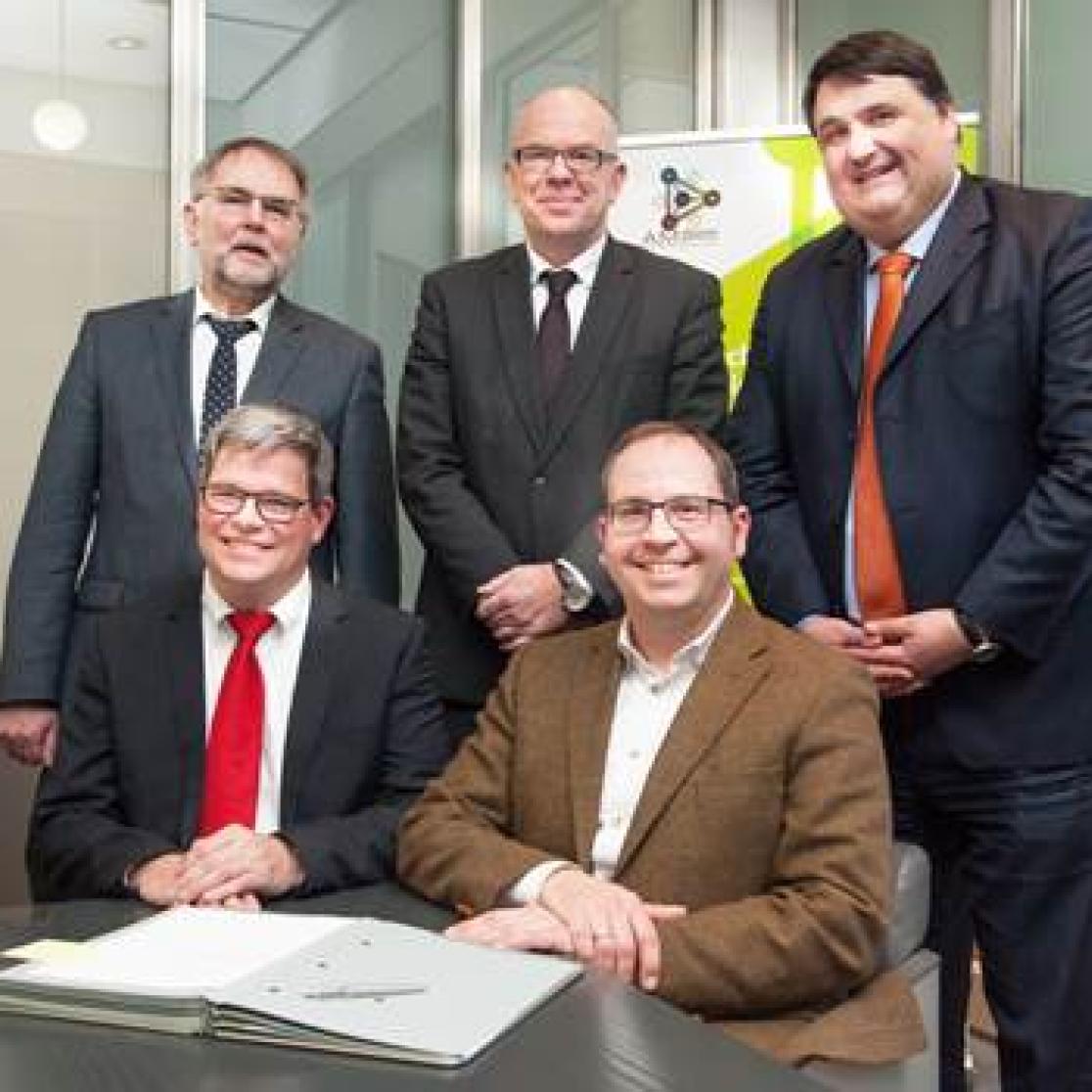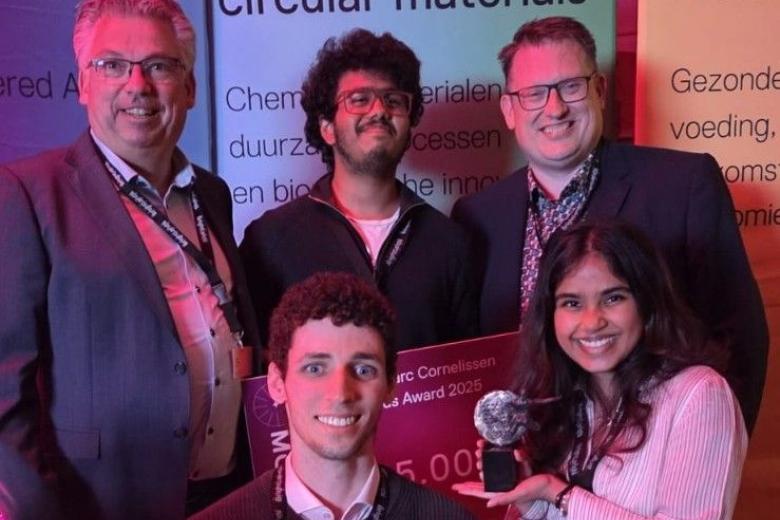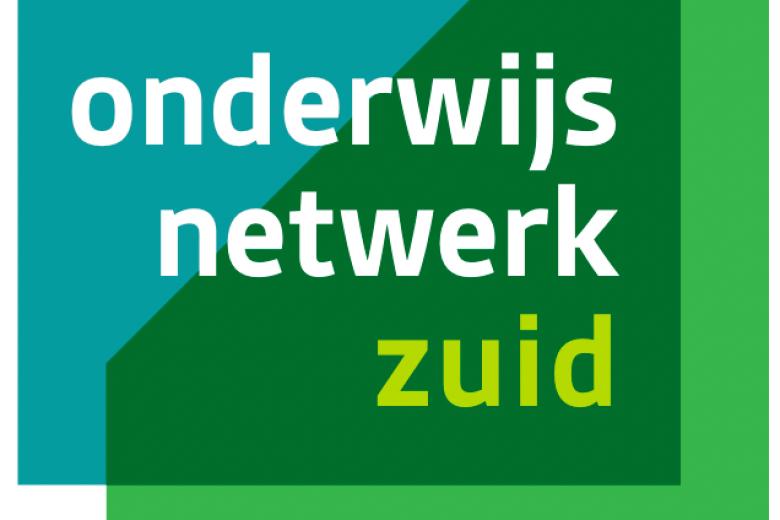Maastricht University and RWTH Aachen University formalise biobased materials collaboration
On Monday 18 January, RWTH Aachen University and Maastricht University signed a contract to formalise their structural collaboration in the Aachen Maastricht Institute for Biobased Materials on the Brightlands Chemelot Campus. The research carried out by UM and RWTH focuses on biobased materials in AMIBM. This joint investment will receive financial support from the province under the Kennis-As (knowledge axis). The new AMIBM building on Chemelot Campus will be completed later this year.
AMIBM is a cross-border research institute within the Kennis-As Limburg, run by Maastricht University, RWTH Aachen University and the German research institute Fraunhofer IME. It is made possible in part by a financial contribution from the Province of Limburg and started in December on the Brightlands Chemelot Campus in Geleen. The AMIBM research programme focuses on the sustainable and efficient production of biobased materials and their innovative contribution to medical and technological applications. All of the AMIBM professors are affiliated with a broad scientific constituency at UM, the MUMC+, RWTH Aachen University and Fraunhofer. AMIBM prioritises interdisciplinary collaboration 'From Plant to Implant'. In this way, AMIBM works on complex and cross-disciplinary projects.
New appointments
Several professors already held positions within AMIBM. These include: Prof. Sanjay Rastogi (UM), Prof. Stefaan de Wildeman (UM) and Prof. Stefan Jockenhövel (UM/RWTH). Professors Rainer Fischer (Fraunhofer IME, molecular biology), Gunnar Seide (RWTH ITA, application and production of biobased fibres) and Richard Ramakers (managing director AMIBM) were recently added to the team.
AMIBM now has 25 stafmembers and will relocate to the newly renovated lab in Building 1 on the Brightlands Chemelot Campus in October 2016. One of the first machines to be installed is a unique wet spinning facility, which can be used to produce new biobased fibres for medical applications. The temporary locations in Maastricht, Aachen, Sittard-Geleen and Bonn will be concentrated on Chemelot.

Manfred Nettekoven, Chancellor of RWTH; Twan Beurskens, Deputy of Economics and Knowledge Infrastructure for the Province of Limburg; Martin Paul, Chair of the UM Executive Board; Stefan Jockenhövel, Academic Director of AMIBM; Richard Ramakers, Managing Director of AMIBM
Also read
-
Roy Broersma (CEI): Guiding Aestuarium from idea to venture
Roy Broersma, director of the Center for Entrepreneurship & Innovation (CEI) at SBE, has been closely involved in guiding Aestuarium from an early student startup to a growing venture. From spotting their potential during the Brightlands Startup Challenge supporting them through CEI.
-
Despite a less tight labour market no end to shortages in healthcare, education, and tech
Interesting new findings in the report 'The Labour Market by Education and Occupation until 2030' from the Research Centre for Education and the Labour Market (ROA) at Maastricht University.
-
A strong education network for Brabant and Limburg: better alignment, less dropout
On November 24, 2025, secondary schools (VO) and higher education institutions (HO) in Brabant and Limburg signed up for the Education Network South Netherlands: one VO-HO network that will improve the flow of students to further education and reduce dropout rates.